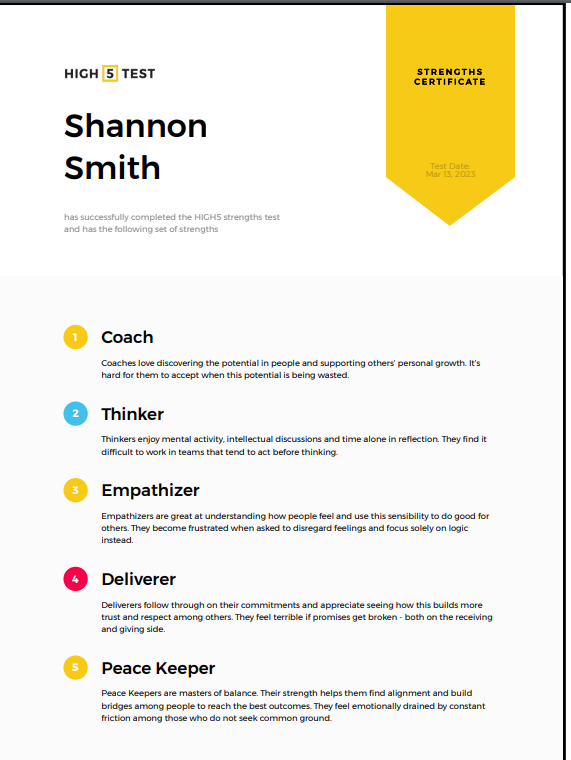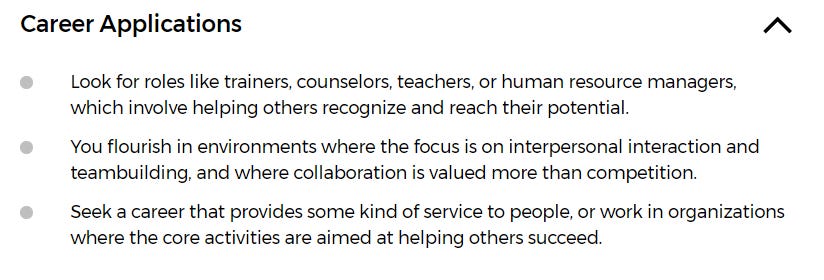Maybe Your Burnout Isn't About the Workload...
Consider these 3 hidden causes of burnout and surprising solutions that actually work.

It was 3 pm on a Tuesday, and I’m staring blankly at my to-do list.
There were only two things left, but I couldn’t muster the energy to do either of them.
The crazy thing was, I worked from home, avoided the commute, and still…the exhaustion was bone-deep.
It was the type of feeling that makes me question everything.
…Am I lazy?
Am I sick…?
Am I losing it…?
Here’s what I’ve discovered:
Sometimes burnout isn’t about your workload, but what you’re working for.
Let’s unpack three often-overlooked reasons for burnout, so you can regain your energy, focus, and passion for your work.
Reason 1: Your values & work are misaligned
We all have a unique set of values that guide our decisions and actions. When our work aligns with these values, we feel a sense of purpose and meaning.
However, when there’s a misalignment, it can lead to a feeling of disconnect, disillusionment, and ultimately burnout.
When was the last time you sat down and considered what is most important to you?
Do you know what your core values are? If the answer is no, there’s no time like the present to figure it out.
Solution: Rediscover and Reconnect with Your Values.
Take some time for introspection. What truly matters to you? Is it creativity, collaboration, autonomy, making a difference? Write down your top five values.
Once you’ve identified your core values, assess how your current role aligns (or doesn’t) with these values.
Ask yourself:
Does my work allow me to live my values?
Are my daily tasks contributing to goals that align with my values?
Does my company culture support my values?
If the answer to any of these questions is no, it’s time to start making changes.
This could involve having a conversation with your manager about adjusting your responsibilities, seeking out new opportunities within your company, or even exploring a career change that better aligns with your values.
By working in ways that honor your values, you tap into a deeper source of motivation and fulfillment. This not only reduces burnout but also leads to greater self-respect and a sense of authenticity in your work.
Reason 2: You’re not using your strengths
Are you constantly feeling drained and unfulfilled at work? It could be a sign that you’re not utilizing your unique talents and strengths.
When we’re forced to focus on tasks that don’t come naturally to us, it can lead to frustration, exhaustion, and ultimately, burnout.
That’s exactly why I felt so drained and unhappy in my career as a call center customer service representative.
Here’s a quick glance at my top 5 strengths:

And here are the career recommendations based on my #1 strengths:

My first choice was a career as a trainer, so I did research, took courses, applied for internships and finally landed a role in my new chosen field one year later.
Solution: Identify your strengths and find ways to leverage them.
Take an assessment like the one above, talk to a career coach, or simply reflect on the tasks you enjoy and excel at.
Once you know your strengths, look for opportunities to use them more often. According to Gallup’s StrengthsFinder research, employees who have the opportunity to use their strengths at work are six times more likely to be engaged in their jobs and three times more likely to report having an excellent quality of life.
When you’re using your strengths, you’ll not only feel less burnout but also more energized, engaged, and confident in your abilities.
This can lead to increased productivity, better performance, and greater career satisfaction.
Reason 3: You lack autonomy and ownership
Do you feel like you have no control over your work? This lack of autonomy is a major contributor to burnout.
When we feel micromanaged, powerless, or unable to make decisions, it can lead to stress, resentment, and a loss of motivation.
I recall learning about the Job Characteristics Model in a recent class within my I/O Psychology graduate program. This model has been widely researched and validated.
Studies consistently show that autonomy is a key factor in job satisfaction, motivation, and overall well-being.
Employees with greater autonomy report lower levels of stress, higher levels of engagement, and greater job satisfaction.
When we have control over our work, we feel a sense of ownership and responsibility, which can lead to increased engagement and productivity.
Solution: Take back control!
Start by identifying the areas where you lack autonomy. Is it your schedule, your tasks, or your decision-making power? Once you pinpoint the problem, explore solutions.
This could involve:
Negotiating: Talk to your manager about adjusting your work arrangements. Perhaps you can work from home a few days a week, set your own hours, or have more say in which projects you take on.
Taking Initiative: Volunteer for tasks that allow for more autonomy. Show your manager that you’re capable of handling more responsibility.
Problem-Solving: If you’re facing a roadblock, don’t just complain. Propose solutions. This demonstrates your initiative and ability to take ownership of your work.
Seeking New Opportunities: If your current role offers little autonomy, it might be time to consider a new job that provides more freedom and control.
By reclaiming your autonomy, you’ll not only reduce burnout but also experience a host of other benefits. When you have control over your work, you feel more empowered, motivated, and invested in your success.
This can lead to increased productivity, better performance, and you’re more likely to make decisions that benefit both yourself and the organization.
Final thoughts
There’s no doubt that burnout is a real and challenging experience, but it doesn’t have to be your constant companion.
By being aware of these hidden causes — misalignment between your values and work, underutilization of your strengths, and lack of autonomy — and actively seeking solutions, you can reignite your passion, reclaim your energy, and find renewed fulfillment in your work.
Remember, burnout is not always about the workload. Sometimes, the key to beating it is in realignment.


